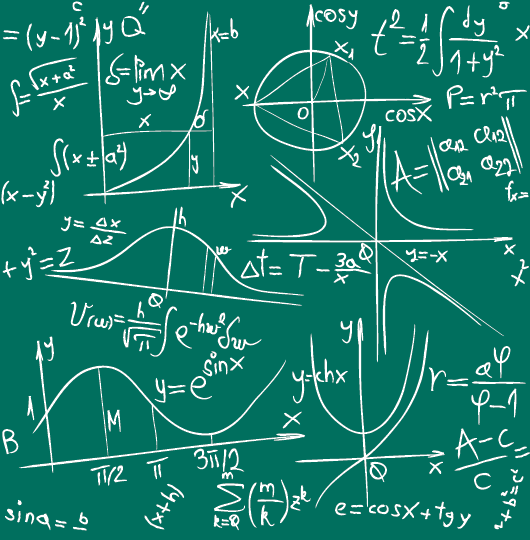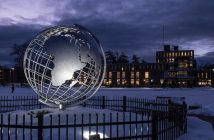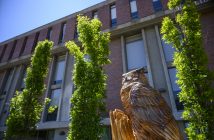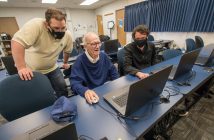Opportunity knocks for Westfield State math majors, as the department has just launched a new Research Experience for Undergraduates (REU) program.
Created by Brian Jennings, Ph.D., and Maureen Bardwell, Ph.D., with assistance from Karin Vorwerk, Ph.D., and John Judge, Ph.D., the REU program is a yearlong experience designed to prepare students for complex mathematical work and graduate programs. Each faculty member involved in the program was assigned a specific student to mentor.
“We wanted to develop more programs for our stronger students,” Dr. Bardwell says. “Most graduate schools are interested in students with research experience.”
The REU program is organized in three phases. Phase one involves an independent study in the spring semester, which allows students to familiarize themselves with their area of study and meet weekly with a faculty member who serves as their project director. In phase two, students live on campus for seven weeks during the summer, where they complete the majority of their research. The program concludes in the fall semester, when students find a point of resolution in their investigation, type up their research and present their work at the fall meeting of the Northeast Section of the Mathematical Association of America (MAA).
Typically, undergraduate research programs are held throughout the summer over a period of about 10 weeks, but Dr. Jennings says there are many benefits to expanding the REU to a yearlong model.
“This model allows for more variety in the research topics,” Dr. Jennings says. “The spring semester is an opportunity to do the background research, and the fall allows the students to follow up and finish their research. Their research doesn’t come to a standstill at the end of the summer, which allows them to do more with it.”
The four students who were selected for the program, Rachael Fountain ’15, Jacob Goodreau ’16, Zachery Lancto ’15, and Jessica Young ’15, were handpicked by Dr. Jennings and the other faculty members who organized the program.
“It’s the first year, so we wanted it to be successful and set a good precedent,” Dr. Jennings says. “We are all faculty members so we are familiar with the students in the department, and we had students in mind who would be the right fit, not only in terms of mathematical skills, but also in terms of maturity and how they approach solving questions.”
Research topics ranged from abstract algebra and Fibonacci matrices to experimental data analysis and phase space properties of quantum states.
While students completed the majority of their research during the summer, they also worked with Urban Education students 10 hours per week, both in class, assisting instructors, and outside of class, offering tutoring services and study sessions. With the goal of modeling graduate programs, many of which require students to serve as teaching assistants, the REU students worked with freshmen to help the freshmen better understand the material.
Urban Education student Estevan DeLacruz ’18 had Fountain as a student teacher for his Math Explorations class and felt she helped him, and others in the class, comprehend the work.
“She was a great asset because she made us discover different ways to tackle problems without holding our hands,” Delacruz says. “This different perspective that she provided us was essential to my success.”
The Math Department hopes to obtain funding to possibly expand the program in the future, according to Dr. Jennings. Students were selected to present at the Joint Mathematics Meeting of the MAA and the American Mathematical Society (AMS) in San Antonio, a highly competitive conference.
“It’s a high vindication that all of our students were selected to present,” Dr. Jennings says. “We feel that our program, and the exact model we envisioned, worked out very well.”




